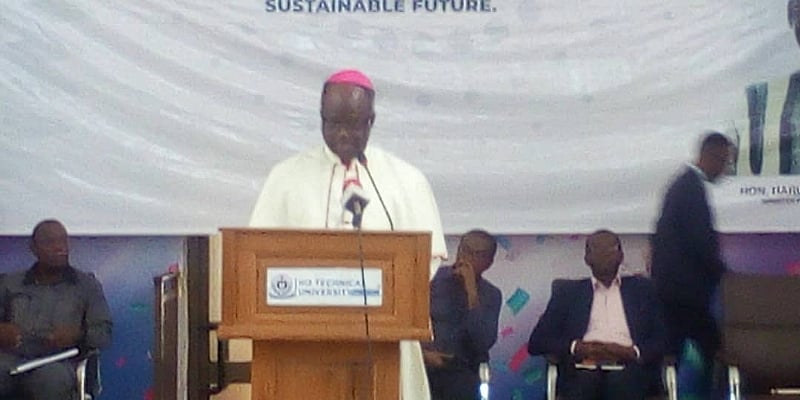The Catholic Church in Ghana, represented by Bishop Emmanuel Kofi Fianu of the Ho Diocese, has voiced profound concerns regarding the government’s management of Catholic schools, citing a breakdown in communication and collaboration that undermines the historical partnership between the Church and the state in education. This disconnect, according to Bishop Fianu, manifests in several critical areas, including the appointment and transfer of teachers without consultation, effectively sidelining the Church’s authority and influence within its own institutions. This lack of engagement not only disrespects the Church’s established role but also creates uncertainty about its future contribution to the education sector. The Bishop’s remarks, delivered at the National Education Forum (NEF) in Ho, highlighted the urgency of addressing these issues to ensure the continued effectiveness and faith-based identity of Catholic schools.
The Bishop’s critique extended to the broader lack of consultation with religious stakeholders on crucial policy decisions, characterizing the government’s approach as detrimental to the collaborative spirit necessary for providing quality education. He pointed to instances of hostility from some Directors of Education towards the Church, further exacerbating the strained relationship. This lack of respect for the Church’s contributions, coupled with the exclusion of religious representatives from the Ghana Education Service (GES) Council, signals a concerning disregard for the integral role faith-based institutions play in moral, ethical, and civic education. Bishop Fianu urged a reconsideration of this exclusion, emphasizing the importance of including religious voices in shaping the educational landscape.
Beyond the issues of consultation and representation, Bishop Fianu highlighted practical challenges facing Catholic schools, including the unauthorized use of school grounds for infrastructure development, severe overcrowding in secondary schools, and inadequate facilities struggling to accommodate burgeoning student populations. These issues, he argued, directly impact the quality of education, hindering effective teacher-student interaction and straining already limited resources. The Bishop reiterated the Church’s commitment to providing quality education through its schools, which serve as an extension of its faith, and called for a more respectful and collaborative partnership with the government.
A key concern for the Bishop is the preservation of the distinct faith-based identity of Catholic schools. He urged the government to prioritize posting newly recruited Catholic teachers to Catholic schools, ensuring that the religious ethos of these institutions is maintained and strengthened. Furthermore, he advocated for the development of a formal written policy outlining the partnership between the government and mission schools. This policy, he believes, would provide a framework for effective collaboration, clarify roles and responsibilities, and safeguard the unique character of faith-based education. This formalization would not only address the current challenges but also provide a foundation for a more sustainable and productive partnership in the future.
The Bishop’s address at the NEF offered a clear articulation of the Church’s perspective on the current state of education in Ghana and the challenges facing faith-based schools. His call for greater consultation, respect, and collaboration resonated with the forum’s theme of transforming education for a sustainable future. He acknowledged the positive step taken by President Mahama and the Planning Committee in inviting the Church to participate in the forum after an initial oversight, expressing optimism that the concerns raised would be seriously considered and lead to meaningful reforms within the education sector. This engagement, he hoped, would mark a turning point in the relationship between the Church and the state, paving the way for a more collaborative and effective approach to education.
The National Education Forum, as described by Professor Ben Q. Honyenuga, Vice-Chancellor of Ho Technical University, and Prof. Smile Dzisi, a member of the Planning Committee, represents a critical opportunity for Ghana to re-evaluate and reform its education system. The Forum, part of President Mahama’s initiative to transform education for national development, aims to gather input from diverse stakeholders across the country. This nationwide consultation seeks to address key issues such as improving educational quality, strengthening infrastructure, and recognizing the significant contributions of faith-based institutions like Catholic schools. The insights gathered, Prof. Dzisi assured, will inform the development of a comprehensive policy framework designed to ensure the long-term growth and success of Ghana’s education sector, ideally incorporating the concerns and recommendations voiced by Bishop Fianu and other stakeholders.


